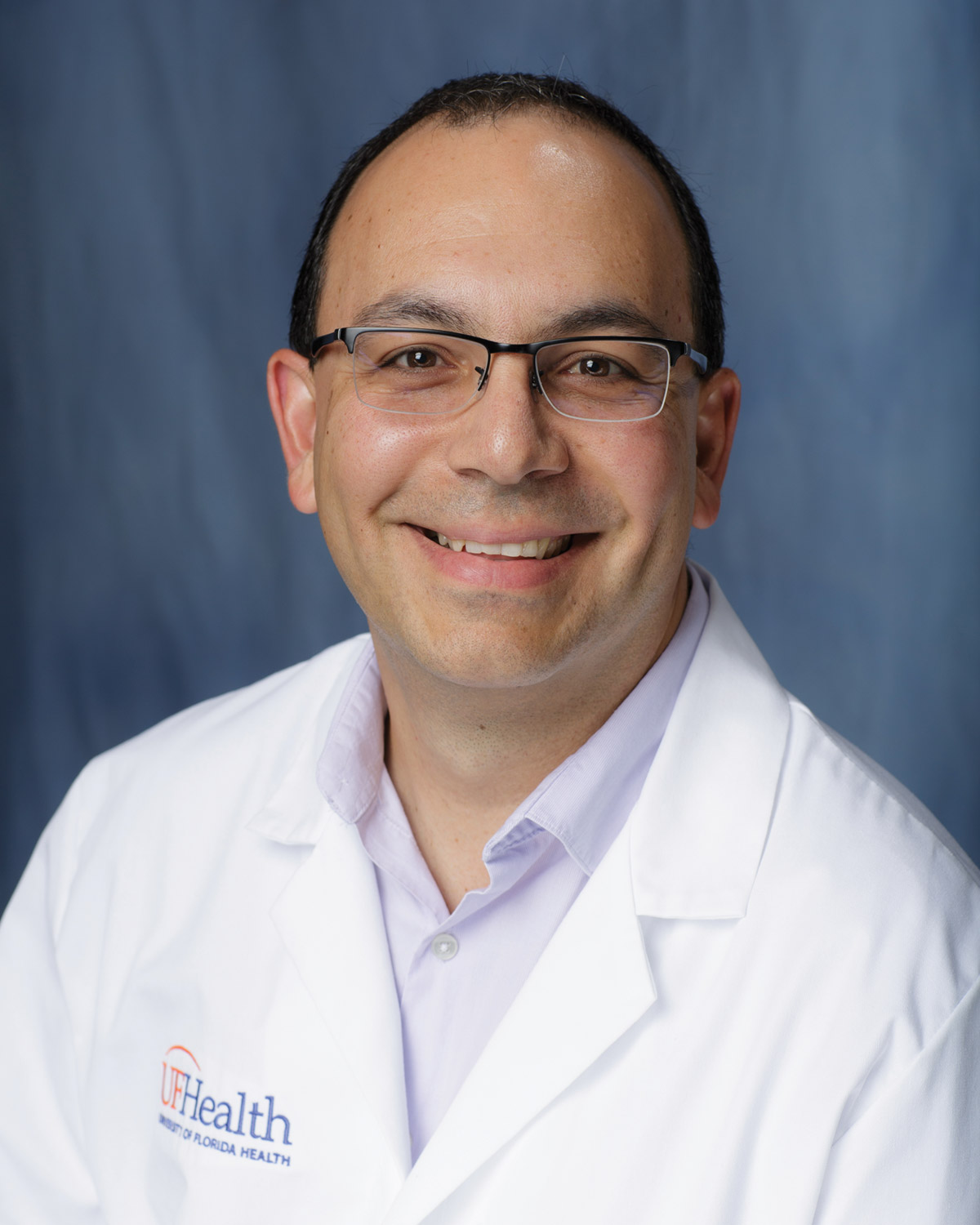Eduardo Candelario-Jalil, Ph.D.
Professor of Neuroscience
College of Medicine
2024 Awardee
Eduardo Candelario-Jalil, a professor of neuroscience, studies how inflammation contributes to injury following ischemic stroke. His research aims to better understand disease development, discover new ways to block inflammation and halt the progression of injury.
Candelario-Jalil first became interested in ischemic stroke — the most common type that occurs when a vessel supplying blood to the brain is blocked — as an undergraduate student at the University of Havana in Cuba.
“When I volunteered as an undergrad in a lab focused on ischemia, I thought it was a very exciting area of research because any progress we could make would impact a lot of people,” Candelario-Jalil says. “Stroke is the second-leading cause of death worldwide and people who survive can end up with permanent disability. As a scientist, it’s a privilege to have the opportunity to discover things no one knew before.”
Candelario-Jalil went on to obtain a master’s degree in experimental pharmacology and a doctorate in pharmaceutical sciences at the University of Havana. He then completed two postdoctoral fellowships, one in the department of psychiatry at the University of Freiburg in Germany and the other at the University of New Mexico. He became a research assistant professor in the UNM department of neurology in 2008. After obtaining his first major grant from the National Institutes of Health in 2011, he came to UF.
Among the factors that drew him here were the vibrant neuroscience community and access to state-of-the-art technology at the Advanced Magnetic Resonance Imaging and Spectroscopy Facility at the McKnight Brain Institute. He was promoted to associate professor in 2019 and full professor in July 2024.
Candelario-Jalil now directs a research program funded by two NIH grants. He has authored 72 peer-reviewed publications, 11 invited review articles and three book chapters. He has also made significant contributions to the understanding of neuroinflammatory mechanisms in ischemic stroke. In addition, he is co-coordinator of the neuroscience graduate program.
“From the beginning, I have had outstanding mentors who are really passionate about research, and this has instilled in me curiosity and enthusiasm for research,” he says. “In my lab, I try to do the same for junior faculty, postdocs and students. I enjoy mentoring very much, and it motivates me to see how impactful this will be for them as they advance their careers.”


